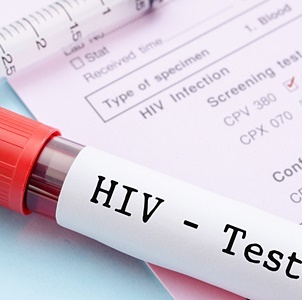
Despite the fact that the world has made great strides in HIV education and treatment over the last 10 years, many patients still feel ashamed when they're diagnosed. This stigma is one of the most dangerous aspects of HIV and we still have a long way to go when it comes to eliminating the shame associated with the virus.
No longer a death sentence
This is according to Health24's HIV expert Dr Sindisiwe van Zyl. She explains that the humiliation HIV positive patients experience can be deadly because it keeps them from seeking medical assistance, and "although the virus is no longer a death sentence, some people would rather get sick than access treatment".
An anonymous Health24 reader confirms that feeling too ashamed to ask questions was a major hurdle for her when she was diagnosed.
"I had a million questions but didn't want to reach out because I was afraid that people would judge and reject me," she says. "It was one of the main reasons I didn't start treatment immediately."
Read the full question here: HIV stigma
Understanding HIV can be complicated, so we took a look at some of the common questions on Health24's HIV forum. These can provide answers for those that are too embarrassed to ask.
10 important questions answered by our HIV expert:
How accurate is the Rapid HIV (over the counter) test?
What should I know about CD4 and viral load?
Are there medical schemes that will cover HIV treatment immediately when you join?
How do you tell your partner that you are HIV-positive?
How long can I live on ARV treatment?
Multivitamins to supplement ARV
Can I take a break from ARV meds?
Pregnant and HIV-positive: will my baby get HIV?
Can I manage HIV/Aids with medication, diet and healthy lifestyle?
Can I still infect people if my viral load is undetectable?
Changing stigma
Unless the stigma surrounding HIV/Aids is better understood, it will continue to be a serious barrier to the testing, treatment and care of people living with HIV/Aids. Its negative effect will increasingly affect public health campaigns, and society as a whole.
Dr Sindi van Zyl says that patients living with HIV (whether newly diagnosed or living with HIV for a while) should always remember 3 important things:
1. Knowledge is power: If you are not comfortable asking questions, make sure you read up as much as you can about HIV and living positively with HIV.
2. ARV treatment requires commitment: Do not start antiretroviral treatment unless you are ready to take responsibility and be dedicated to medication times. Make sure you understand why you have to take it and how it works.
3. HIV is not a death sentence: HIV chronic manageable condition, if you are well informed and make the necessary lifestyle changes, you can live a long, full life with HIV.
Read more:
South Africans living with HIV still face rejection




 Publications
Publications
 Partners
Partners











